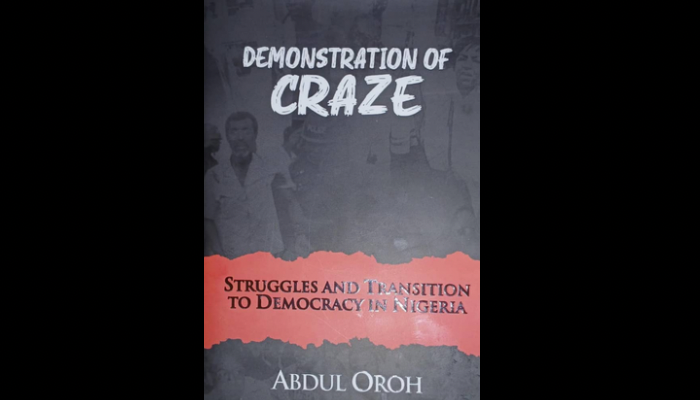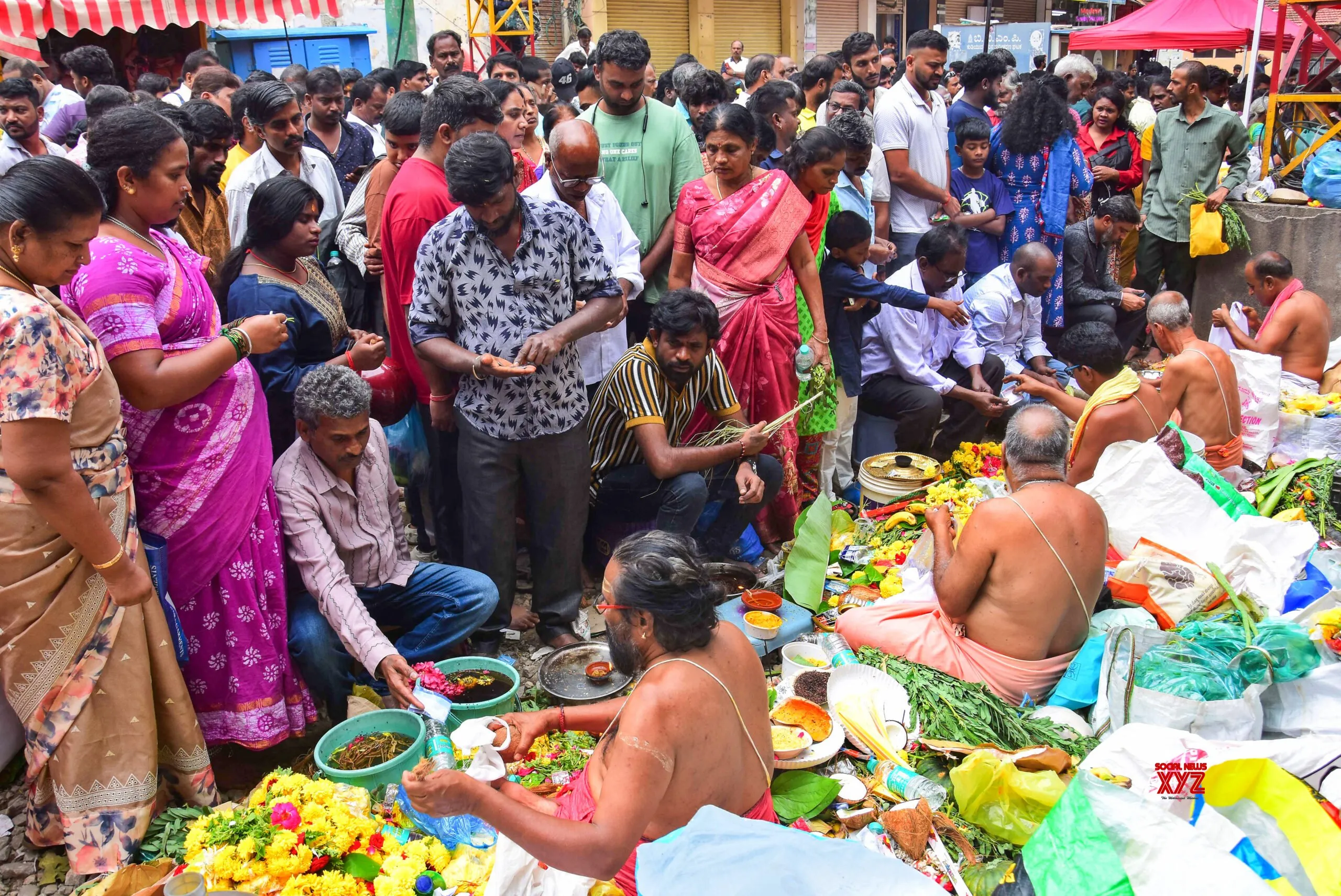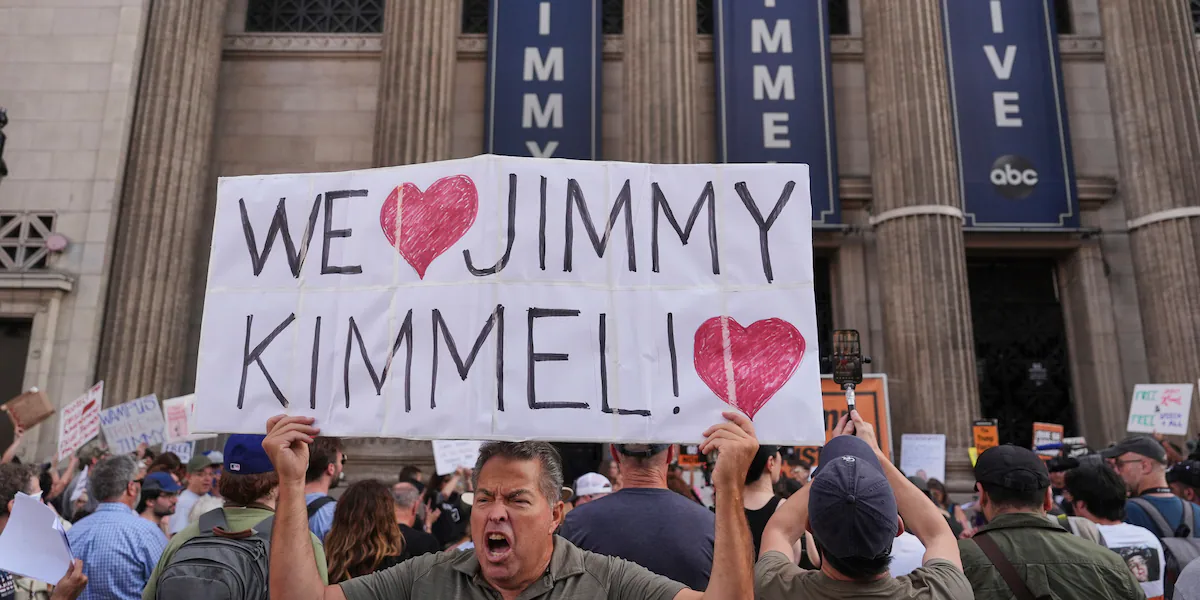A Landmark Memoir: “Demonstration of craze” delivers the definitive account of Nigeria’s democratic struggles
By Chido Nwakanma
Copyright businessday

In the extensive landscape of Nigerian political literature, Abdul Oroh’s Demonstration of Craze: Struggles and Transition to Democracy in Nigeria stands out as more than just another book; it is a significant achievement. This 611-page memoir, published in 2024, is substantial both in physical weight (1.1 kg) and in intellectual significance. It provides a comprehensive, close-up account of Nigeria’s turbulent path to democracy, aimed at serious scholars, dedicated activists, and any reader eager to understand the nation’s complex soul.
Drawing its evocative title from the satirical lexicon of the legendary musician Fela Anikulapo-Kuti, the book spans an extraordinary historical arc—from the scars of the transatlantic slave trade and colonialism through the fierce anti-colonial and pro-democracy struggles, into the eras of military despotism, neoliberalism, and Nigeria’s current state of “ill-liberal democracy.”
Oroh creates what Professor Olu Obafemi describes as “a unique personal and collective tale, reminiscent of Fela Anikulapo’s rhapsodic critiques of Nigeria’s democracy.” Olu Obafemi notably wrote the essay, “We may yet thank the military”, in The Guardian during a period of intense intellectual engagement with the army in 1984.
The work stands out with its ringside view of post-independence Nigeria, blending personal narrative with national history in what critic Chidi Anselm Odinkalu describes as “both authentic and fast-paced to the point of being totally spellbinding” despite its considerable length.
Oroh’s memoir goes beyond typical historical tales by blending personal experiences with broader national struggles, creating what the author himself calls an examination of “the reality of our existence as children sharing the burden of a nation with congenital disabilities and managed by people ill-prepared for the tragic role”.
The Author: A Life Lived in the Struggle
Oroh is uniquely qualified to tell this story. His life mirrors the very struggles he documents:
• The Journalist: Beginning as a senior editor at premier outlets like The Guardian, ThisWeek magazine, and Vanguard, his first detention came in 1983 under President Shagari, when he was arrested while reporting on the NECOM House fire.
• The Activist: He dedicated a decade to leading the Civil Liberties Organisation (CLO), becoming a primary target of the Buhari, Babangida, and Abacha regimes, enduring repeated imprisonment for his principles.
• The Politician: Transitioning into electoral politics, he served as a Member of the House of Representatives and later as the longest-serving Commissioner in Edo State under Governor Adams Oshiomhole.
• The Lawyer: His legal training provides a sharp, juridical lens through which he dissects Nigeria’s democratic institutions.
This multifaceted career infuses the narrative with unparalleled authenticity and depth.
A Narrative Forged in Friendship and Struggle
Oroh’s account is enriched by his deep personal connections with Nigeria’s resistance icons. He was a friend and collaborator of the musical rebel Fela Anikulapo-Kuti and his brother, activist Beko Ransome-Kuti. The renowned lawyer Gani Fawehinmi chaired his wedding reception. Notably, he navigated complex political divides, serving as a confidant to both MKO Abiola and an ally to Bola Tinubu in exile.
As Sully Abu notes in the foreword, the book is also “a searing indictment of people who… promptly jettison old friendships and ties,” a theme that resonates throughout Oroh’s political journey. Abu was the managing director of The African Guardian magazine.
Central Thesis: The Conspiracy Against vs. For Hope
The book’s strong core is in what critic Chidi Anselm Odinkalu describes as “the tension between the determined optimism of the author and the brutalities of the Nigerian condition.”
Oroh argues that Nigeria has been affected by a “conspiracy against hope”—a corrosive alliance of soldiers, politicians, judges, and business elites who have thrived on the nation’s systematic failure since independence, resulting in “colossal failure and grotesque waste.”
However, this is not a nihilistic piece. Its main aim is to support a redemptive “conspiracy for hope,” a coalition able to rescue the Nigerian dream. The very presence of this memoir—crafted by a man who endured multiple detentions to serve and share his story—is a testament to this hope.
Even so, the book presents stark statistics about Nigeria’s violent political history, noting that “on a single day in July 1993, we lost 243 protesters in Ikorodu Road, Lagos. In other parts of Lagos, Ibadan, Benin, Ekpoma, and across the country, the number of people killed since the annulment was about 6,000, following the June 12 election annulment. Oroh also documents lesser-known tragedies, such as the murder of a police sergeant assigned to the Inspector-General of Police’s residence, who was allegedly tortured to death for stealing £50,000 belonging to the IGP’s wife, with authorities claiming he died of tuberculosis.
Unflinching Critique and Overlooked Heroes
Oroh is blunt in his assessments. Figures like Olusegun Obasanjo, Muhammadu Buhari, and Anthony Anenih come across as “pretty damnable.” His critique of former comrade Adams Oshiomhole is especially stark, explaining how the governor was undermined by “absolute power and authoritarian impulses.”
Crucially, the book corrects the historical record by highlighting the important yet often overlooked roles of women in the democracy movement, paying tribute to leaders such as Ayo Obe, Amma Ogan, Nkoyo Toyo, and others.
It also meticulously documents the philosophical factions within the pro-democracy movement:
• The Pragmatists (CLO, Socialist Congress): Advocated participation in the political transition to reform from within.
• The Purists (Gani Fawehinmi, CDHR): Saw transition participation as a betrayal of the June 12 mandate.
• The Port Harcourt Tendency (Oronto Douglas, Jaiye Gaskia). Focused on environmental justice and was more open to engagement.
Breathtaking Scope and Contemporary Relevance
Historical Period
Key Events Covered
Oroh’s Personal Involvement
First Republic
Crises in Tiv-land & Western Region
Childhood experiences & early awareness
Military Rule
Buhari/IBB/Abacha regimes; June 12 annulment
Journalism, activism, multiple detentions
Democratic Transition
Abdulsalami program, 1999 elections
Political participation & governance roles
Fourth Republic
Corruption, governance challenges
Service as Rep and Commissioner
The book is brutally factual, noting that approximately 6,000 Nigerians were killed following the annulment of the June 12 election, including 243 protesters on a single day on Ikorodu Road, Lagos.
Its analysis vigorously delves into contemporary crises. Drawing on his experience as Agriculture Commissioner, Oroh exposes the complicity of traditional rulers in the herder crisis, stating they prioritised payments from herdsmen over their subjects, leading to farms being destroyed and citizens raped and killed. He endorses Tinubu’s creation of the Ministry of Livestock Development but calls on leaders like Edo Governor Okpebholo to “tame our greedy traditional rulers.”
Conclusion: An Essential, Definitive Account
Demonstration of Craze is, as Odinkalu asserts, “arguably the most authentic account of the struggles against military rule and for democracy in Nigeria.” It achieves the rare balance of being both a searing indictment and a testament to resilient hope.
More than a memoir, it is a vital historical record—a first draft of history by one of its key players. For anyone seeking to understand the painful birth of Nigerian democracy and the fragile hope for its future, Abdul Oroh’s masterpiece is not just recommended; it is essential reading.



